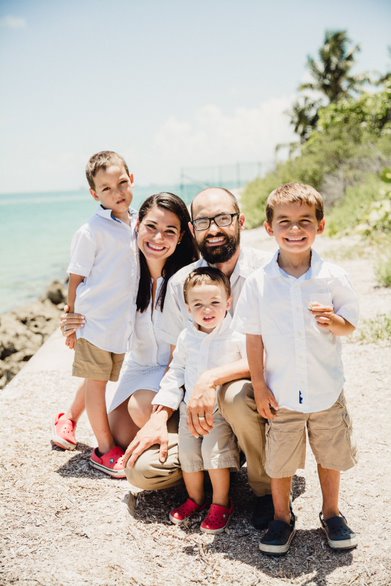Wife and mother to four, Jackie Wald made the conscious decision to pursue the “weighty work” of motherhood and home life as her career. She called it a “pivotal decision” that shaped the whole of her life.
Still, when she got together with other women who were staying home, she wasn’t all that interested in talking about diapers or the toilet habits of her growing toddlers.
“I saw that a lot of mothers with young children were defaulting to virtual worlds,” she says, “to escape the loneliness of that season of life. When they got together to share life, the conversations steered in the direction of ‘kid talk.’ … I saw that this inhibited meaningful relationship building and perpetuated loneliness.”
Her years in Catholic studies had taught her that she had a fine and curious mind, and the distinct ability to dissect challenging works. To help combat some of the “default” position she saw around her, she came up with a solution: the Intellectual Play Date. Once a week, women with their children in tow would meet to share hospitality and discuss an assigned article.
“These conversations lead to good reflection and discussions,” she notes, “and over time a deep sisterhood was built. We made a conscious effort to not simply leave the discussion theoretical but really tried to discern how to apply the truths we’d extracted to our lives. It led to such a fruitful time. Life as a stay-at-home mom has been incredibly full, and I’ve experienced great sanctification in the ordinary.”
But she’s very careful not to glamorize the ordinary either. “One of my favorite Dostoevsky quotes is ‘Love in action is a harsh and fearful thing compared to love in dreams,’” she says. “When I romanticize the sacrifices of motherhood it can breed fear and loneliness in other mothers. They begin to experience the trials of everyday motherhood and think ‘I must be doing something wrong because I’m not experiencing what all those other mothers shared.’ So, the ‘dying to self’ of my vocation is very real, but that is where our current culture fails to do the work. People do not stick around long enough to see that the endless tantrums, sleepless nights and soiled clothes meet a deep satisfaction that comes when one is doing the will of the Father.”
One of the greatest benefits she sees to having chosen a career at home is a new freedom to simply be available. “There is so much busyness in our culture,” she says, “so much running around that it seems no one has time for the needs right in front of them. The lonely, elderly neighbors, the single mother who needs last-minute child care, the friends who just had a baby and need a meal, or my very own children and spouse. I am convicted that the Lord has me home to actually be home. To allow for interruptions in a day, to respond to the immediate need of a neighbor, to be around when someone just wants to stop in for coffee and connect. What I do isn’t often noteworthy and can be done by just about anyone, but it needs doing. Chesterton said, ‘The human house is a paradox, for it is often larger inside than out.’”





